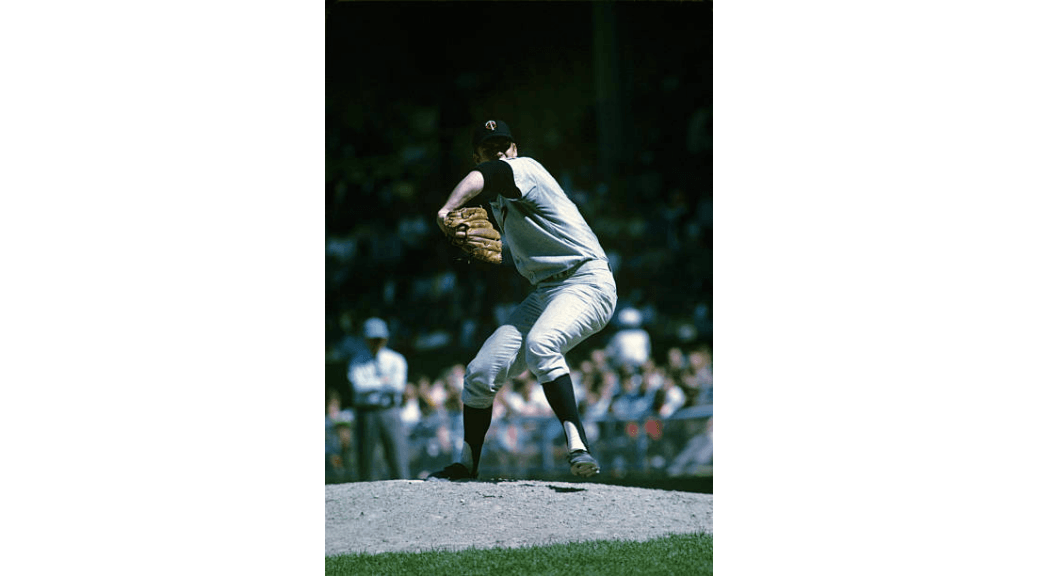MINNESOTA 8, OAKLAND 4 IN MINNESOTA
Date: Monday, April 21.
Batting stars: Ted Uhlaender was 3-for-4 with a walk and a stolen base (his second), scoring three times. Graig Nettles was 2-for-3 with two RBIs. Rich Reese was 2-for-4. Tony Oliva was 2-for-5 with two RBIs.
Pitching star: Dean Chance pitched seven innings, giving up an unearned run on two hits and a walk and striking out three.
Opposition stars: Rick Monday was 2-for-3 with a double and a walk, driving in two. Tommie Reynolds was 2-for-4 with a double. Ex-Twin Jim Roland struck out three in 2.1 scoreless innings, giving up no hits and three walks.
The game: It was scoreless until the third. With the bases loaded and one out, Oliva had an RBI single, Killebrew had a two-run single-plus-error, and Nettles had a two-run single to make the score 5-0.
It stayed there until the sixth. Chance had a no-hitter through five innings, but Monday led off the sixth with a double. An error put men on first and third and Ramon Webster had a sacrifice fly to put the Athletics on the board.
That was all Oakland got, though, and the Twins came back with two in the bottom of the sixth. With Uhlaender on second, Carew reached on a three-base error to make it 6-1. Oliva followed with a single to increase the lead to 7-1. The Twins added a run in the eighth on an RBI triple by Cesar Tovar.
Oakland scored three off Joe Grzenda in the ninth to make the final score look better. Danny Cater had an RBI single and Monday drove in two with a single. Bob Miller came on to get the last two outs of the game.
WP: Chance (1-0). LP: Chuck Dobson (1-2). S: Miller (2).
Notes: I seem to recall that the save rule was different for awhile than it is now. That would be the only reason Miller would get a save. He came into the game with the score 8-2, two runners on, and one out.
After watching George Mitterwald do the majority of the catching the first couple of weeks of the season, Johnny Roseboro took over as the regular. This was his third consecutive game as the starter. Perhaps Roseboro had a minor injury at the start of the season.
This would be Chance's second-best game of the season. It would be bettered only by a complete game against Kansas City in September. Chance was injured for much of the season but did well when he could pitch, posting an ERA of 2.95 and a WHIP of 1.26.
Oliva raised his average to .392. Roseboro was 1-for-4 and was batting .368. Carew was 1-for-5 and was batting .366. Killebrew was 1-for-3 with a walk and was batting .317. Uhlaender raised his average to .302. The first four men in the Twins order (Uhlaender, Carew, Oliva, and Killebrew) all had averages over .300.
Dobson was the starter for Oakland but lasted just 2.2 innings, giving up five runs on seven hits and a walk and striking out one.
The Twins went 1-for-2 in stolen bases and remained below .500 in that category, going 7-for-15.
After losing their first four games, the Twins had now won seven in a row.
Record: The Twins were 7-4 and in sole possession of first place for the first time all season, leading the White Sox by a half game.


Yep. From the Repository of Knowledge:
Right now the tying run has to be on base, batting, or on deck. Miller entering with an 8-2 and two men on means the on deck person would only make it 8-6, not qualifying for a save under today's rule. 1969 was the first year of the save but I can't find the exact rules for that year yet.